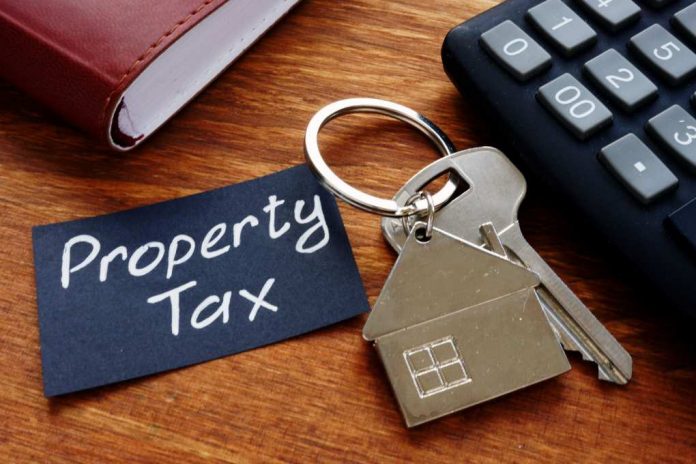
Owning property is a cornerstone of the American dream, but it comes with its fair share of responsibilities — one of the most challenging being property taxes. Even though states use these taxes to pay for important things like schools and roads, some states charge homeowners more than others. In this article, we’ll dive into five of America’s states where property taxes are considerably higher than others.
Property Tax Calculations
Before we dive into our list of the five states, let’s lay some groundwork. A property tax is a key element in homeownership and can vary from one state to another. It determines how much you owe to your local government, and it can have a significant impact on your overall household budget. But what goes into calculating this figure, and why do amounts vary? Let’s break it down. At its core, property tax is typically based on two main components:
- Value of the Property: Before deciding how much you pay, someone called an assessor checks out your property. They look at its size, where it’s located, how well it’s built, and even how much similar houses are selling for. Depending on where you live, they might use the full value of your house or just part of it for the tax calculations.
- Tax Rate: The tax rate is influenced by the number of city and school districts a property resides within, with all the rates summed up to form the “mill levy.” One mill represents one-tenth of one cent, meaning for every $1,000 of assessed property value, one mill equals $1.
The Income Tax Angle:
It is also important to keep in mind that it’s not just about property taxes. There’s another piece of the puzzle when budgeting for a home – the income taxes. Depending on where you live, these can vary widely, and they have a direct effect on your overall income. How much you earn, and how much the state takes as income tax, really affects whether you can afford a house and handle its costs over time. Understanding both is important because they decide how well you will be able to live in that state.
Now let’s take a closer look at some of the top 5 states with the worst property taxes and how their income taxes play into the mix.
Property Taxes: The Five Worst Offenders in America
If you’re planning to buy a home, you might want to be prepared for the hefty tax bills in these areas. When it comes to property taxes in the U.S., these five states are at top the list for the worst. Here are the five states known for their steep property taxes:
- New Jersey: The Garden State
- Illinois: The Prairie State
- New Hampshire: The Granite State
- Connecticut: The Constitution State
- Vermont: The Green Mountain State
1. New Jersey: The Garden State
If you’re living in New Jersey, owning a home might feel like a big hit to the wallet. That’s because New Jersey has some of the steepest property taxes in the U.S. For a home valued at $300,000, you’re looking at a yearly property tax bill of roughly $7,470, thanks to the state’s 2.49% property tax rate. And if you’ve got a pricier home? Well, you can do the math, but it won’t be a pretty number. Now you might find a bit of slack when it comes to New Jersey’s income taxes in comparison to property. If you earn up to $20,000, the state will take 1.4% for income tax. Earn more than $500,000? Then you’re looking at an income tax rate of 8.97%
2. Illinois: The Prairie State
Illinois is known for more than just Chicago; it’s also famous for its high property taxes. In fact, it ranks second in the country for the highest property taxes. Here’s what that means for homeowners: If you own a home worth $300,000 in Illinois, you can expect to pay about $6,810 in property taxes each year because of the state’s 2.27% tax rate. Some cities in Illinois have even higher rates. For instance, Rockford’s property tax rate is 2.67%, Peoria’s is 2.59%, and Joliet’s rate is 2.33%. So, if you live in these cities, you’ll be paying even more.
Unlike its differences in property taxes, Illinois has a flat-rate income tax system. This means that, regardless of how much you earn, everyone pays the same percentage of their income in taxes. As of the last update in 2017, the flat income tax rate in Illinois is set at 4.95%.
3. New Hampshire: The Granite State
New Hampshire has some amazing sights to see, but when it comes to taxes, things get a little complicated. The state has a pretty high property tax rate of 2.18%. So, if you own a house that’s worth $300,000, you’d pay around $6,540 in property taxes every year. But here’s the cool part: New Hampshire doesn’t have regular income or sales taxes like most states. Instead, they had a 5% tax on money you earn from things like dividends and interest. However, this is changing. They’re lowering that rate every year, so it’ll be 4% in 2023, 3% in 2024, 2% in 2025, and just 1% in 2026. So, while you might pay more in property taxes, you could save in other areas, especially if you have investments.
4. Connecticut: The Constitution State
You’ve got to have a happy bank account to live in Connecticut. Connecticut pairs its high cost of living with a rate of 2.14% for property tax. This means homeowners could be shelling out about $6,420 annually on a home valued at $300,000. If you reside in the state’s posher regions, such as Fairfield County, your yearly tax bill might climb even higher.
When it comes to income tax, Connecticut residents earning up to $10,000 (or couples making up to $20,000) are taxed at 3%. However, if you’re a high earner, pulling in more than $500,000 individually or over $1 million as a couple, expect a state income tax of 6.99%.
5. Vermont: The Green Mountain State
Owning a home in this state can get a tad pricey when it comes to property taxes. With a property tax rate of 1.9%, a house valued at $300,000 could have you dishing out around $5,700 annually just in property taxes. Although Vermont’s landscapes are breathtaking, the financial aspect can be a bit tight for many middle-class families. This strain doesn’t just come from property taxes but also from the state’s income tax.
On the income tax front, if you’re single and earning up to $42,150, you’ll be taxed at 3.35%. For couples, this rate applies up to $70,450. Earn more than that? The rates jump to 6.60% for singles making over $42,150 and couples over $70,450. And for those bringing in above $213,150 as singles or $259,500 as couples, be ready to part with 8.75% of your income for state taxes.
Bottom Line
Every state has its charm and appeal, but when it comes to property taxes, some places definitely stand out. States like New Jersey, Illinois, and the others we’ve mentioned can be pricey, but they also have vibrant communities, rich histories, and cultural offerings. When choosing a place to call home, it’s important to look beyond and include every aspect of moving. It’s not just the property taxes that can be demanding; the income taxes in these states can also significantly affect your total affordability in the state. This can further complicate decisions if left unnoticed. Be sure to also include what a state or community can offer in terms of lifestyle, opportunities, and experiences. After all, finding the right balance between cost and quality is the key to truly enjoying the American dream.




























